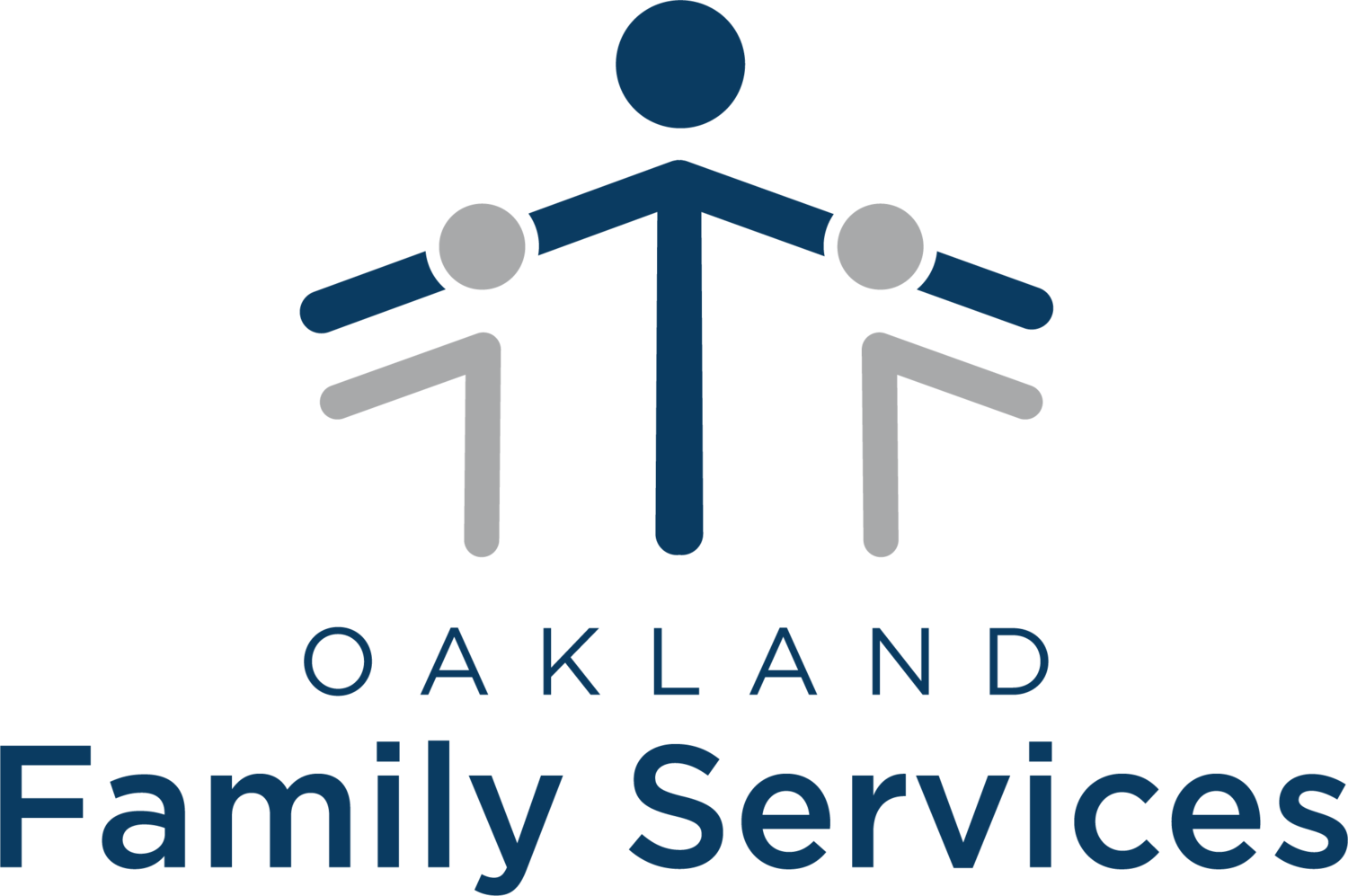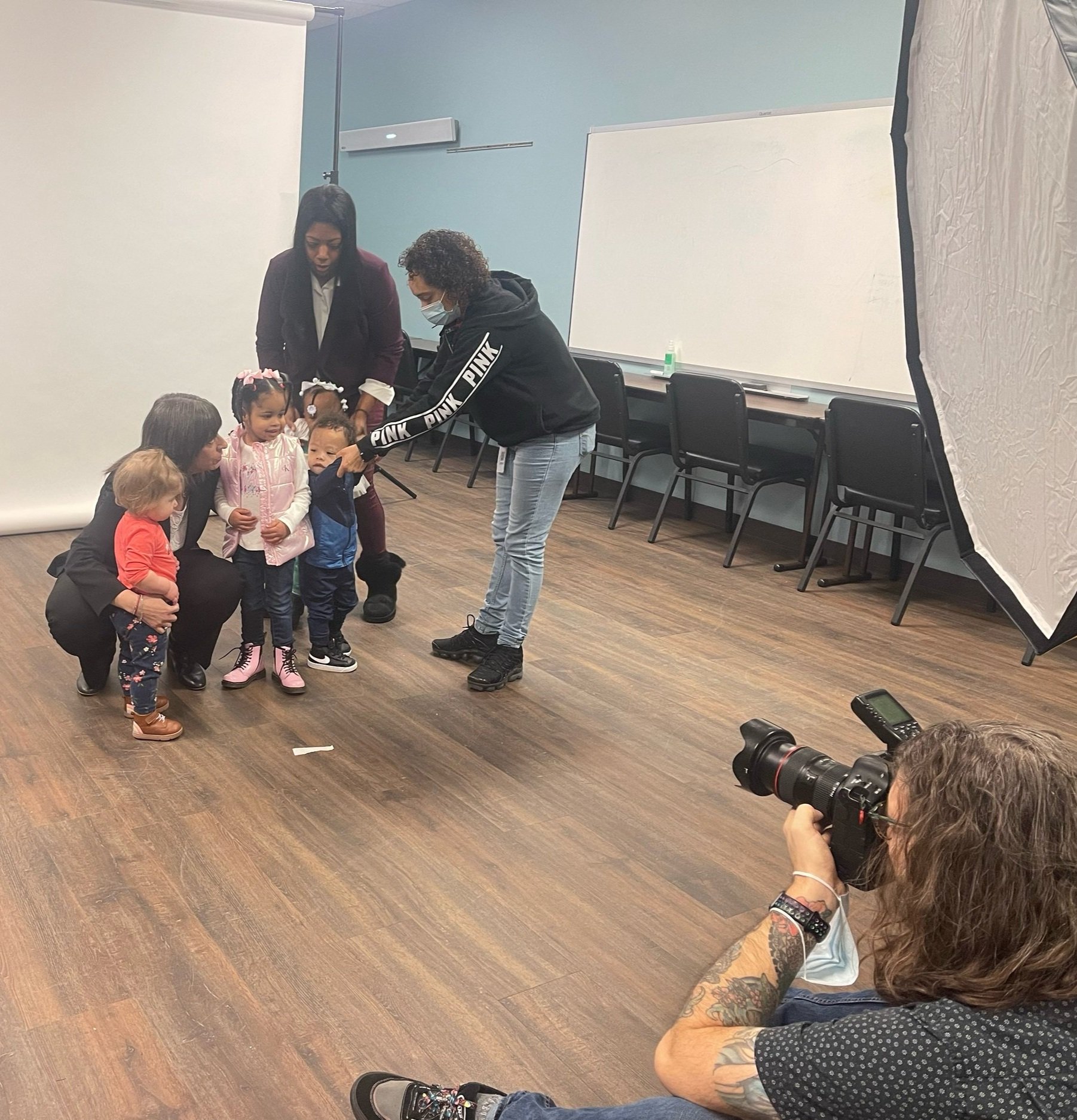CEOs look back on their tenures at Oakland Family Services
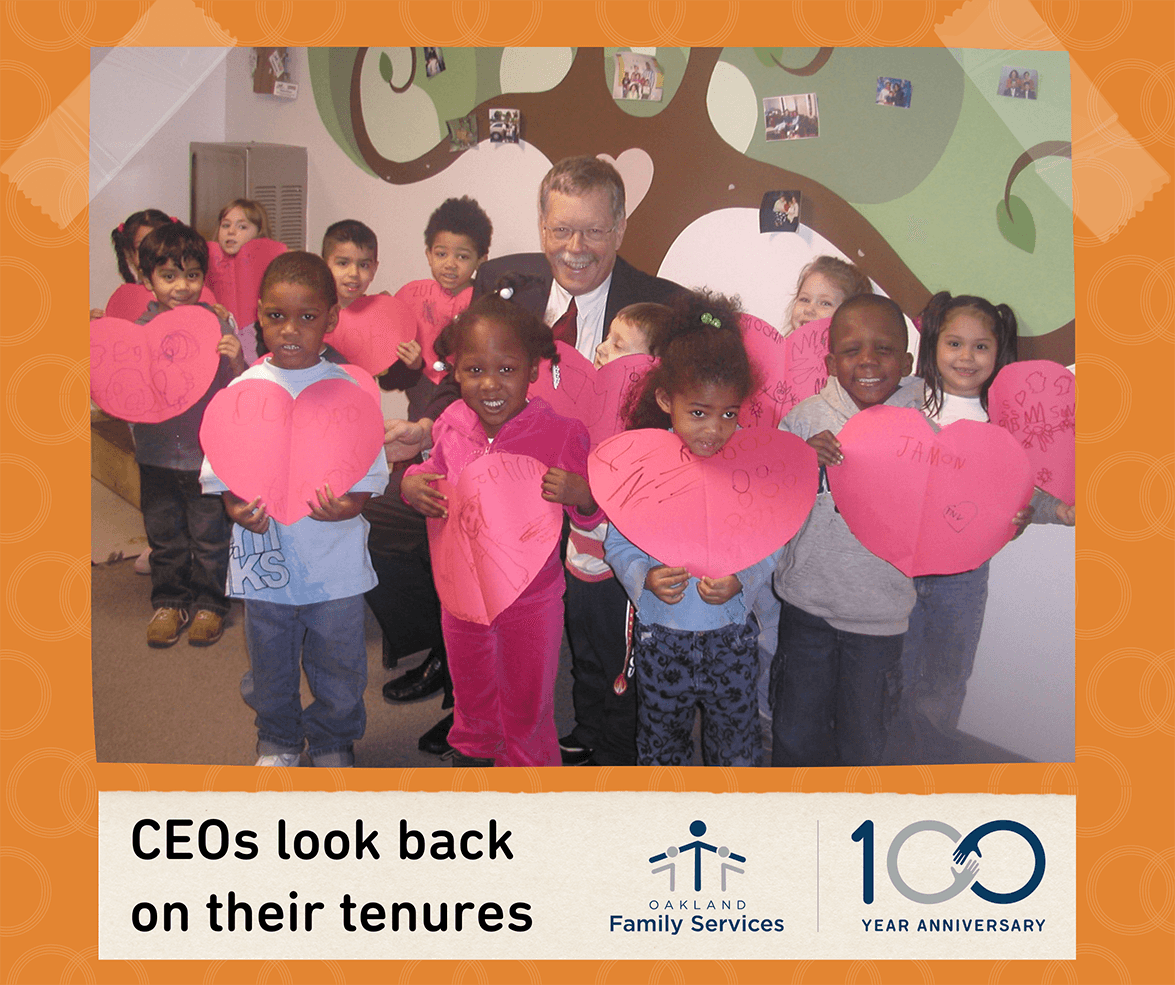
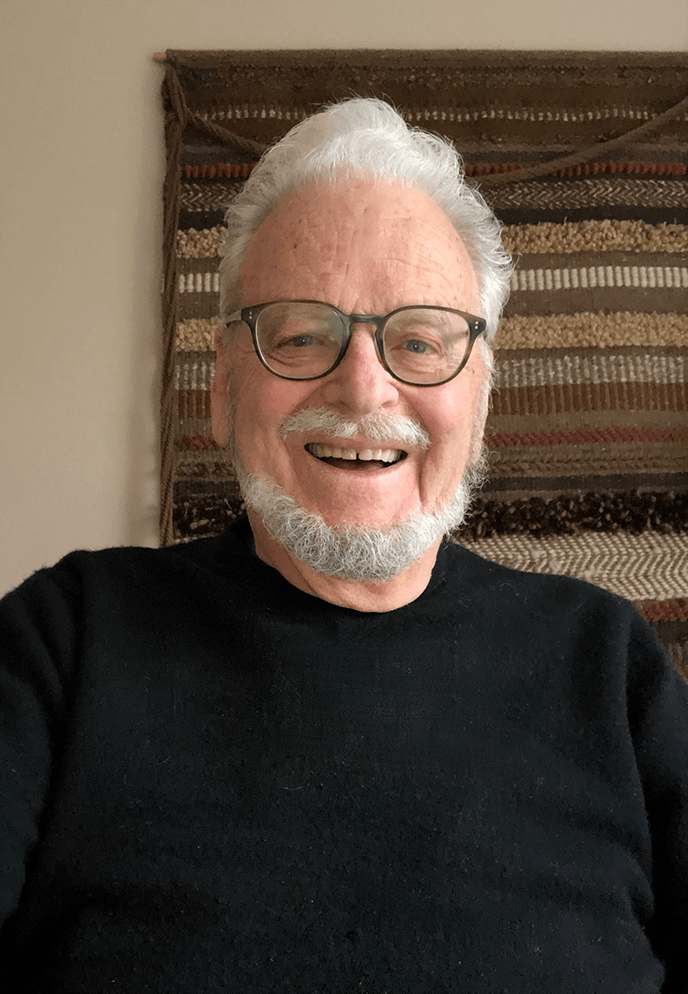
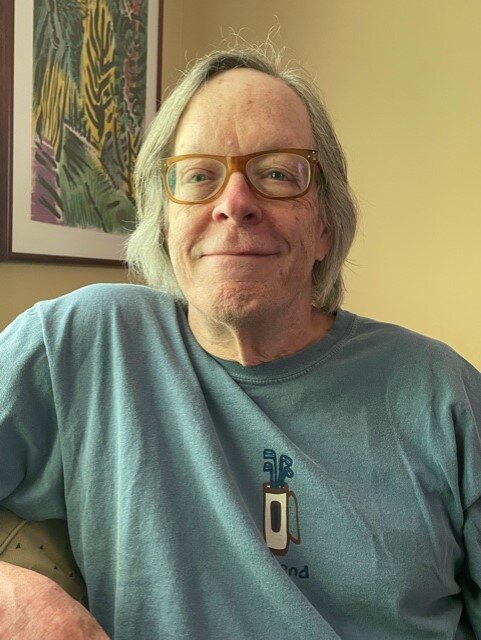
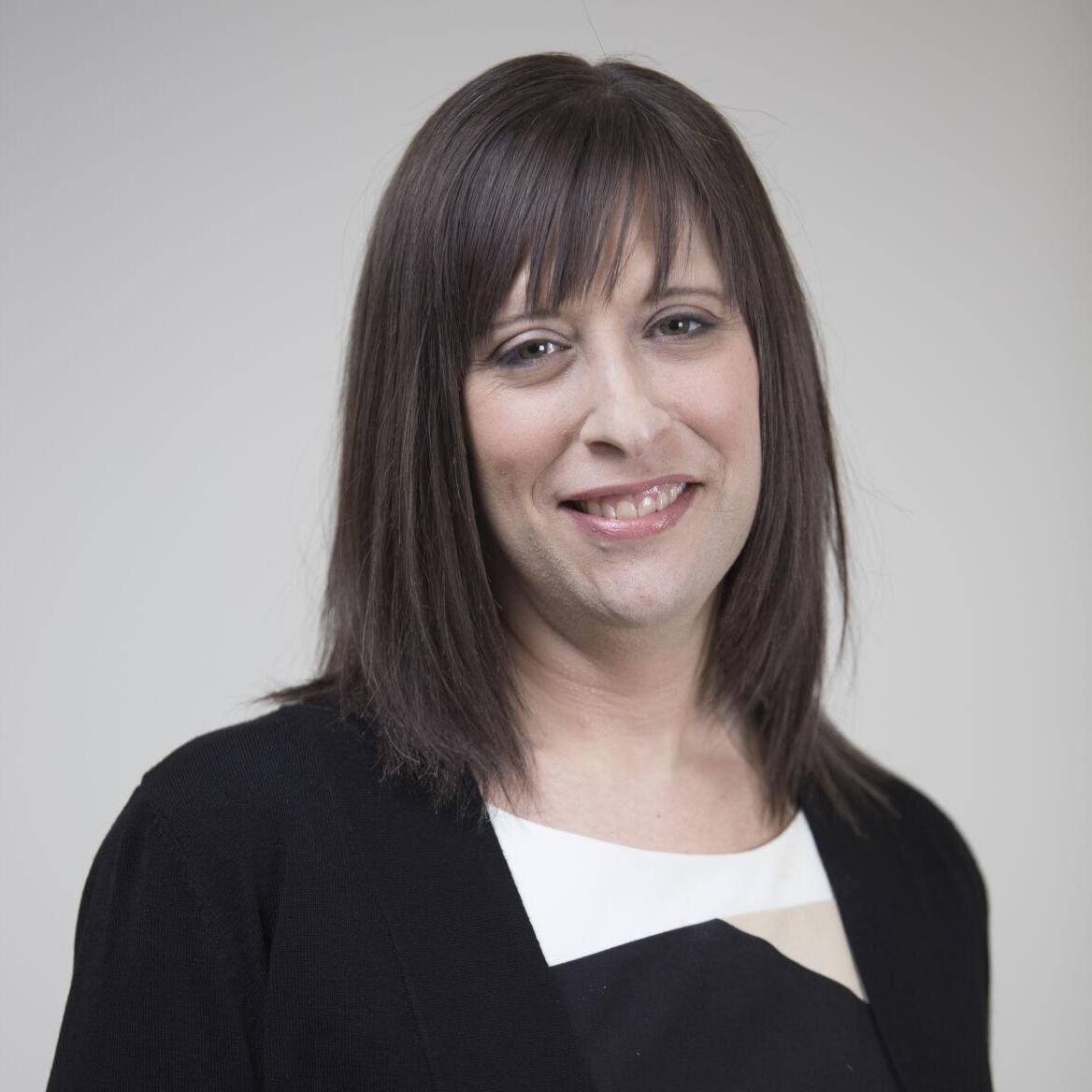

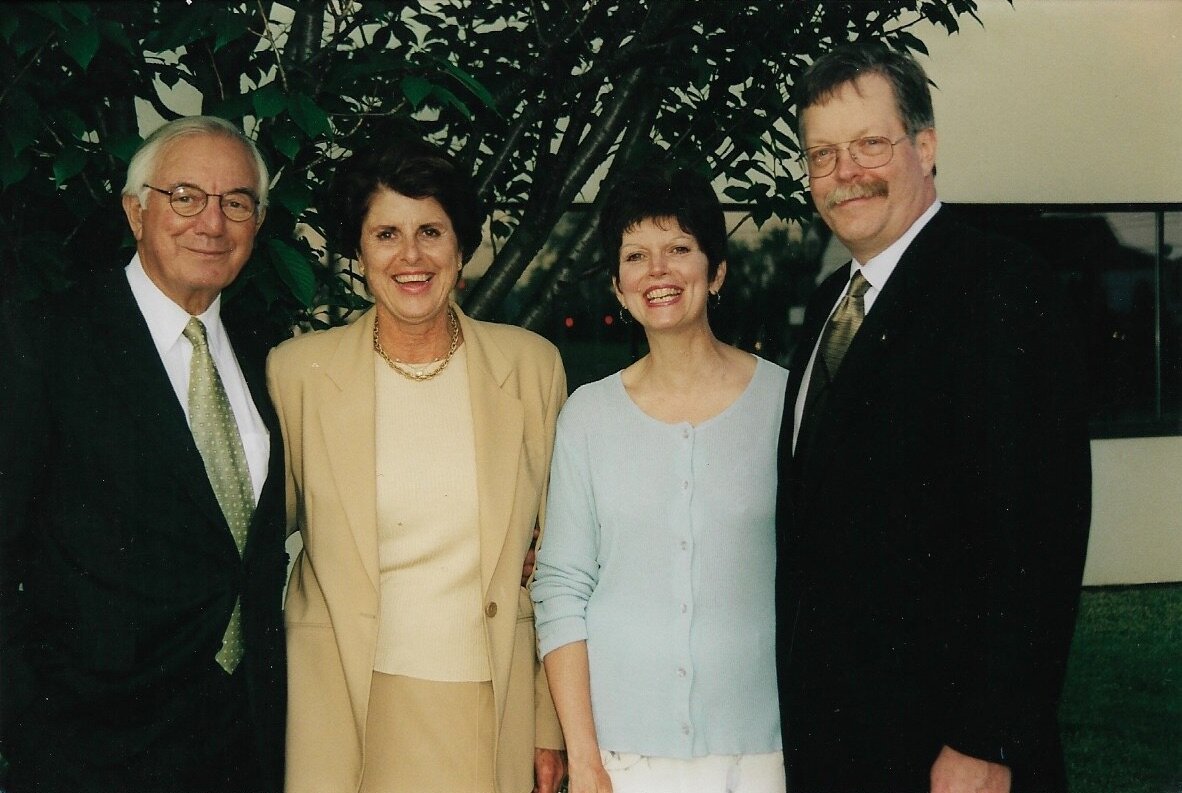
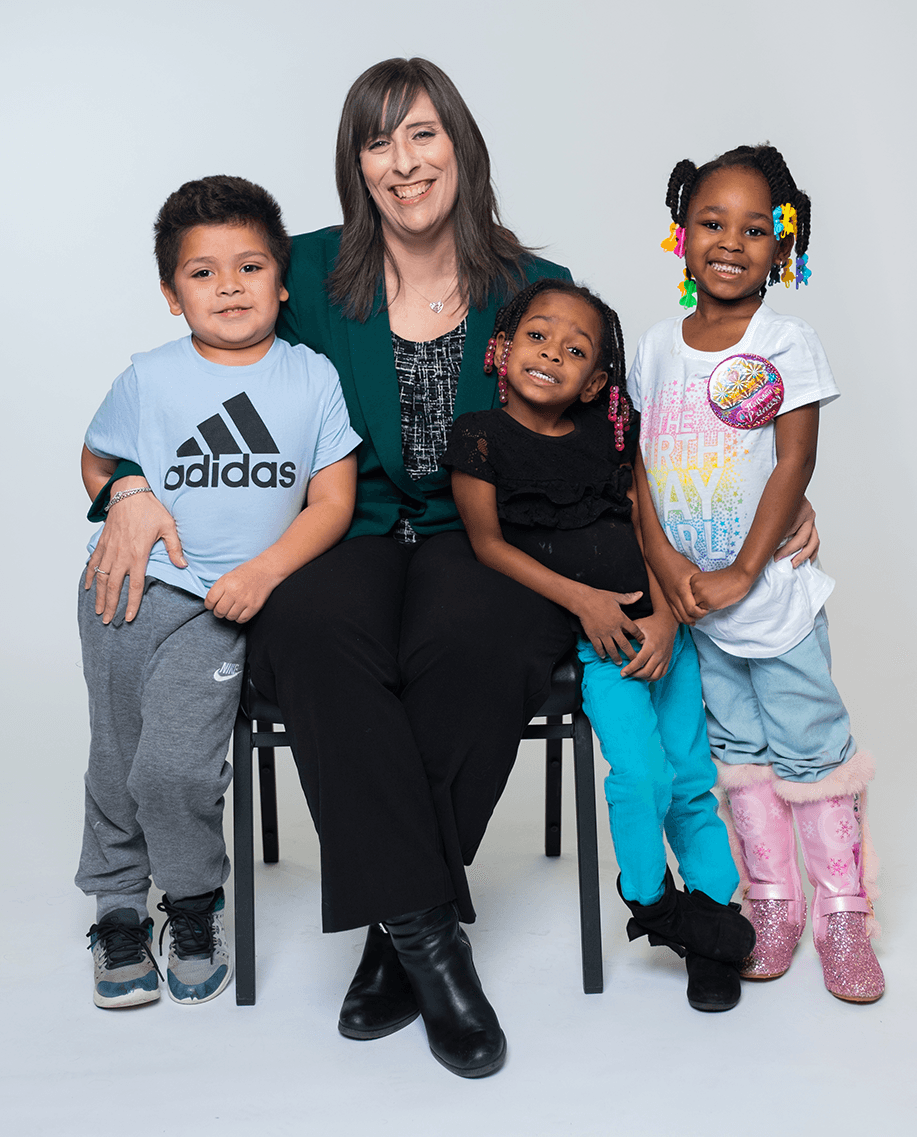
In celebration of Oakland Family Services’ 100th anniversary, current President and CEO Jaimie Clayton and past CEOs Michael Earl and Bill Fry recently gathered via Zoom to reflect on their time at the agency.
Bill Fry started at Oakland Family Services in the 1970s, immediately stepping into a leadership role and helping facilitate change that led to the creation of the president and CEO position. He had worked previously as a case worker and research director, and he had experience in child welfare, family work, education, parole work and health care.
At the time, the agency’s main funding was through United Community Services. There were limited resources for staff, furniture, buildings and technology, and the management structure was in need of a reassessment.

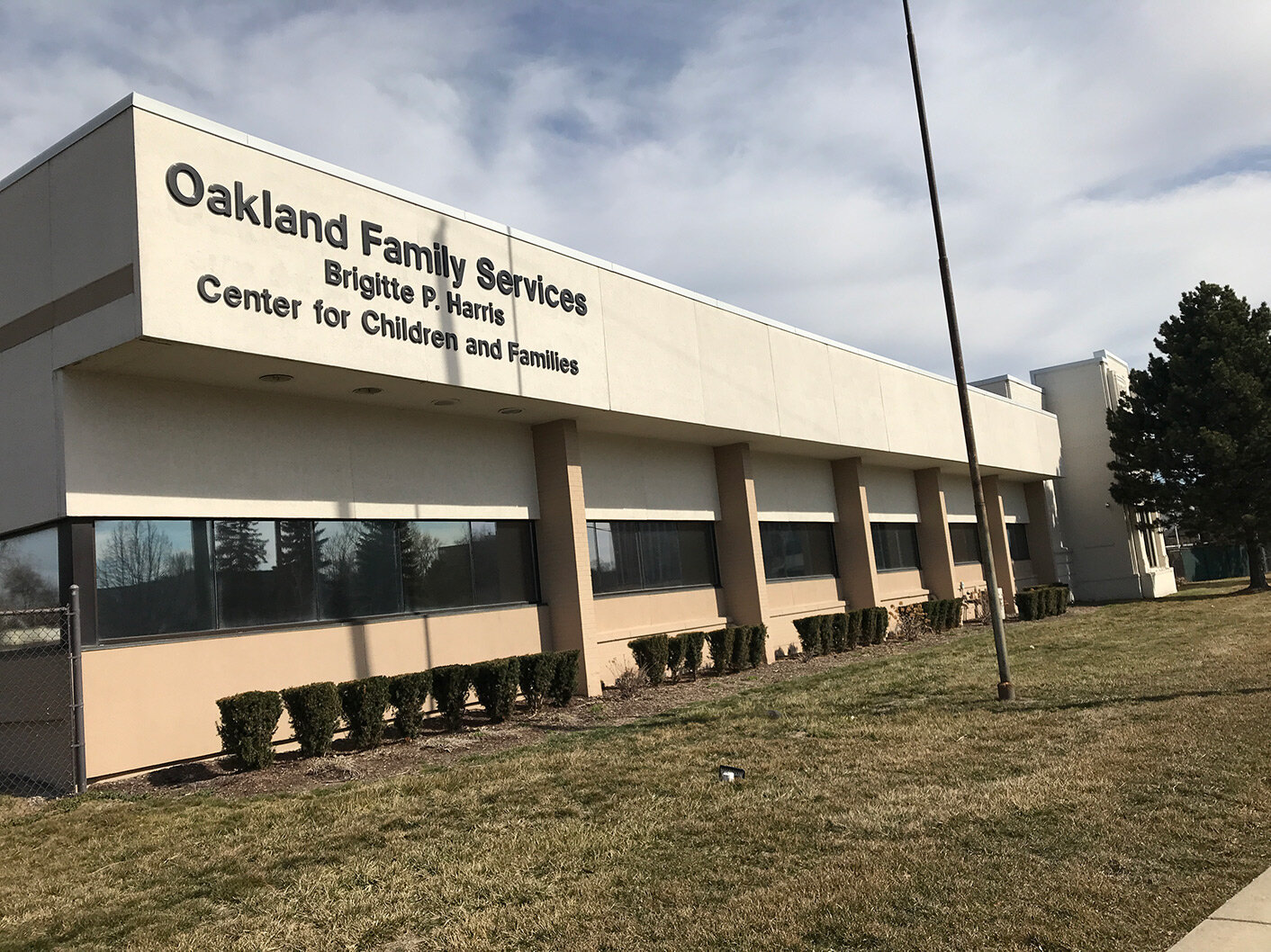
Fry led Oakland Family Services for about two decades up until 1997. One of his favorite memories was the 1989 opening of the Pontiac building on Orchard Lake Road, a former Elks Lodge that was extensively renovated with funds raised through a capital campaign. The agency’s first Children’s Learning Center was opened there in 1990, and the building is still home to Oakland Family Services today.
Fry also worked to build up a strong board and staff.
“[When I was first hired,] the staff had just unionized,” Fry recalled.
Part of that staff was Michael Earl, who was hired in 1979 as a graduate intern at the Berkley office and then became a case worker.
“Bill had a great strategy,” Earl said. “I became a negotiator for the union. … He had a strategy that if somebody showed leadership, you know, because you became a leader in the union, he’d make them a manager. … So, I got hired as a supervisor.”
A Nov. 13, 1997, article in the Oakland Press announces Michael Earl’s appointment to president and CEO.
“You showed leadership all the way through, ever since I met you,” Fry told Earl. “… You can’t run an organization unless you have good leadership within the organization.”
Shortly after Earl was promoted to supervisor, he made a mistake that led to a half-day workshop for the management team.
“I can’t remember what it was,” he said. “It led to an entire management half-day retreat … and at the end of the thing, everybody stood in a circle and they had a go-around of ‘What’s the primary takeaway from the day here?’ … When it came to me, I said, ‘Well, I’ll never do that again.’
“Bill, you came over to me and said, ‘I just want to tell you, yes you will.’ And I said, ‘No, I won’t.’ And you said, ‘Yes, you will, because you took a risk. If you take risks, you get a career. If you don’t take risks, all you have is a job.’ And that stuck with me forever.”
Earl went on to have a long career with Oakland Family Services, going on to become a director, vice president, chief operating officer, and finally president and CEO from 1997-2014.
Funding
Like Earl, Jaimie Clayton came to Oakland Family Services with a background in mental health. She started as a therapist at the Farmington office in 2001, and moved up the ladder to director of the Walled Lake and Farmington locations, director of Behavioral Health, interim vice president of Early Childhood and Behavioral Health, then vice president of Program Operations from 2007 until 2014, when she became president and CEO upon Earl’s retirement.
As she advanced in her career, Clayton worked closely with Earl to learn the ropes and secure the agency’s success.
“As a therapist in the core, what I’m trained for, what my mission is, is to help people, not to help meet some monetary requirement,” she said. “But I learned this through Michael and the board [he and Fry] set up: You don’t get to do the thing that makes you feel fuzzy and warm if they can’t afford to pay you and keep the door open.”
While Oakland Family Services still receives about 8% of its funding from United Way for Southeastern Michigan (a later evolution of the United Community Services organization that funded the agency during Fry’s time), the agency is now funded by a variety of grants and contracts, program fees and donor contributions.
The CEOs recalled a few major shifts in funding and expenditures that have helped the agency maintain strong financial footing.
Earl said one of his greatest memories was when the agency succeeded in a Kresge Foundation Challenge Match to build an endowment by raising about $4 million.
Another huge game-changer was when mental health care became eligible for reimbursement.
“In the old days, people used to come to the agency for mental health coaching or counseling, and it was free,” Earl said. “… We were on the same level as sort of the priest or the rabbi or the minister because people could go to their minister for free and talk to them. And then mental health became a medically reimbursed thing, and suddenly it changed the whole scope of the business.”
Other changes during Earl’s time included outsourcing the finance department and transitioning out of the company’s pension plan.
“The plan cost was projected to increase to about $40,000 per month,” he said. “I worked very closely with [former Board Treasurer] Bob Scharff. He developed a plan to borrow about $1,250,000 needed to pay out all the people with a vested interest in the pension plan. This was a crucial step to eliminating a significant risk and putting the agency on a more firm financial footing.”
Scharff stepped down from the role of treasurer in June 2021, when he also announced Oakland Family Services currently has the strongest balance sheet in the agency’s lifetime in terms of equity in cash.
Technology
“It was one of my dreams that counseling could be done somehow over a telephone, with a video telephone. And that’s actually what you’re doing.”
When Fry arrived in the 1970s, the agency was still using a telephone switchboard.
“The equipment we had was ancient,” he said. “… I remember buying our first two computers. I didn’t know how to spell it, never mind use one.”
Earl recalled going to a meeting at a board member’s office while Fry was still president and CEO.
“While I’m talking to him, I hear this noise, and I look over and there’s this thing making this noise, and some paper coming out,” Earl said. “And I said, ‘What’s that?’ He said, ‘That’s a fax machine.’ It was a message he’d gotten from somebody in South Africa, and I was just aghast. … So, I came back, and I walked into Bill’s office, and I said, ‘Bill, we’ve got to get a fax machine.’ He said, ‘What’s that?’ I said, ‘I just came from this board member’s office. Believe me, just trust me, we’ve got to get a fax machine.’”
The agency ended up purchasing a fax machine for the Pontiac office, and then a few months equipped each office with one.
Since then, technology has come far enough that Oakland Family Services was able to maintain continuity of programs by shifting services online during the coronavirus pandemic.
“We are very proud to say our doors were closed, but we were still open,” Clayton said. “We never dropped a service. We even picked up some.”
“It was one of my dreams that counseling could be done somehow over a telephone, with a video telephone,” Fry said. “And that’s actually what you’re doing.”
Clayton said the coronavirus pandemic will always be a marker for Oakland Family Services.
“Everything from this point forward will be pre-pandemic and post-pandemic,” she said.
Staff and the Board of Directors
Fry said when he first started at Oakland Family Services, board and staff roles were not clearly defined.
“When I first arrived, I felt like I had to do everything,” Fry said. “I had to hire everybody, I had to direct the business office that they could buy pencils … and then when I started hiring some good people, I was able to let go of a lot of things. One of the more satisfying moments is when I realized that my staff could do things better than I ever could.”
Fry worked to build a staff that could carry out the professional services and a board that could govern and fundraise.
“I always felt we were fortunate to build the legacy that Bill Fry established,” Earl said. “He had established a pretty influential board, and we expanded on that. We continued to recruit outstanding community leaders from all walks of life that were deeply committed to us.”
Current President and CEO Jaimie Clayton (center) is pictured with the Executive Leadership Team at a staff meeting in 2019.
Today, strategic relationships established between board and staff benefit the goals and objectives of the agency.
“The board wanted to know staff more, and staff really didn’t understand what the board did as much,” Clayton said. “Our work to find opportunities for the board to spend time with staff, and in some cases work together on various committees, has been a great success.”
Recognizing staff accomplishments and fostering a positive workplace culture is also a major priority for Clayton. One of her favorite days of the year is an annual event that celebrates employees’ milestone work anniversaries.
“The last several years, we’ve had more people at the 5-30 years,” she said. “And you’re talking about the core of the agency, people who are living and breathing our mission and building those brighter futures every day.”
About five years ago, Clayton also began asking each department to submit major accomplishments from the year to be shared at an annual all-staff meeting.
“It’s really so overwhelming when you sit and listen to the impact that we have in the community, from people on the front line of service, to IT and Facilities,” she said. “We could not do those services if we didn’t have the backbone of the agency supporting that front line. … I think it really helps the staff realize their impact in the community.”
Services
Oakland Family Services’ prevention, education and treatment services have evolved over the years to best address the needs of children, families and individuals. Major changes over the years have included a shift in focus to early childhood services, advancement in the understanding of mental health and substance use disorder, and the establishment of the Specialized Services for Youth program for children and teens with severe emotional disturbance.
As time goes on, the fundamental needs of families and children remain largely the same, Earl said. Issues like child abuse and neglect, mental health and substance use struggles, and the need for affordable education persevere.
“Something I got from Michael over all the years we were together was, it’s our goal to be at the tip of the spear,” Clayton said. “… I think the service delivery and how we do things is nimble and flexible and innovative, but the needs of the people we serve just don’t change that much over time. … It’s how we respond that keeps us, as Michael would say, at the tip of the spear.”
Earl said he predicts Oakland Family Services’ next 100 years will be driven by the same focus, strategy and expertise that drove the agency for the first 100 years.
“I would say that resilience and flexibility in being able to adapt are in the DNA of Oakland Family Services,” he said.
“Something I got from Michael over all the years we were together was, it’s our goal to be at the tip of the spear. … I think the services delivery and how we do things is nimble and flexible and innovative, but the needs of the people we serve just don’t change that much over time. … It’s how we respond that keeps us, as Michael would say, at the tip of the spear.”
